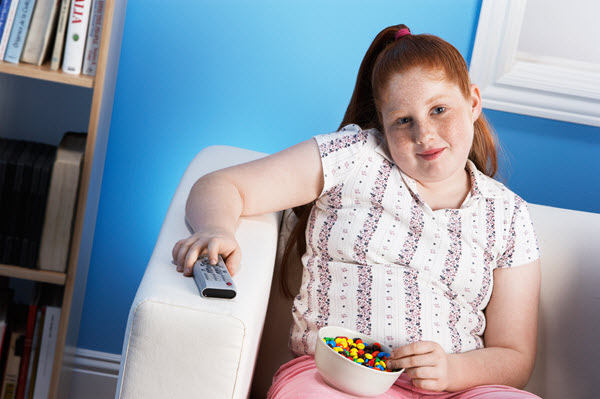Body Image Awareness: How to Talk to Your Kids About Body Image and Health
By Ryan Ayers
November 8, 2019 • Fact checked by Dumb Little Man

Did you know that your children might already be thinking about dieting and feeling insecure about their bodies?
Cultural influences are strong and in a world where social media creates unrealistic body image standards, children as young as six years old can be sensitive about their weight. Eventually, this can lead to severe problems, like low self-esteem and even eating disorders.
With that said, it’s important for parents to encourage their children to maintain healthy habits. That means teaching them to respect their bodies, have a healthy relationship with food, and encourage regular physical activity. It also means setting a good example by modeling a non-judgmental attitude toward your own body while maintaining a healthy lifestyle.
Talking to your kids about body image and health isn’t always easy. Modeling healthy behavior can be even harder. But making an effort to do so is absolutely crucial to their long-term mental and physical health.
Here’s what you need to know when it comes to talking about body image awareness and healthy habits.
The Obesity Problem in America

At this point, most Americans know that the childhood obesity epidemic is reaching crisis levels. The Centers for Disease Control classifies over 20% of the U.S. youth population as obese. Factors like poor nutrition, lack of physical activity, and too much sugar are playing a role.
States like Mississippi, West Virginia, Kentucky and Louisiana have some of the highest rates of childhood obesity. Some of the largest causes of obesity for high schoolers in Louisiana are lack of a healthy diet with vegetables, excessive soda, and lack of sustained physical exercise.
Childhood obesity sets kids up for a huge number of health problems that can affect their growth and future health. Additionally, children who are overweight are often bullied or excluded by their peers, often leading to isolation, low self-esteem, and mental health disorders.
American adults are also struggling with obesity, which can eventually lead to chronic health problems and a shorter lifespan. There are also social stigmas attached to being overweight, leading many people to develop eating disorders or extremely unhealthy behaviors in an attempt to control their weight.
Body Image Awareness: Addressing the Topic With a Sensitive Touch
Talking about weight, health, and body image requires a sensitive touch because kids can easily interpret your words to mean that you think they should focus on losing weight.
It’s important to emphasize health and body positivity over numbers on the scale. Always keep the conversations positive and monitor your language to ensure that you’re not unintentionally creating feelings of shame around weight, food, and exercise.
When addressing health and body image with your child, think about approaching it as a “we”-focused initiative. It shouldn’t involve simply ordering them to get off the couch and get moving. It should include creating family-focused activities you can do together, like hiking, yoga, cooking, and gardening.
Body image, weight, and health hover in a delicate balance, especially when it comes to kids. They will pick up on cues from you and detect any negativity in your words. Take some time to prepare for the conversation to ensure that you approach the topic with sensitivity.
Having the Conversation
Before you can move on to addressing topics such as spending less time online and more time outdoors, you’ll have to make your case. Instead of attempting to convince your child with logic, recognize that you need to have a two-way conversation where you’ll likely listen more than you’ll talk. The idea is to get your kids thinking about their health.
They might not realize that they eat more when they’re upset or how many hours they spend staring at screens. You can start the conversation by asking questions that will help them really start to think about their own habits. Then, talk about ways you can improve your health as a family. Don’t talk about weight loss. Instead, talk about how you can all be healthier together.
If your child is already saying things like “I feel fat”, it’s important to address the issue right away. Ask why they feel that way and try to get to the bottom of the issue.
Have they been bullied or have they seen something that made them feel ashamed?
Once you know why they’re making negative comments about their body, you can start to reverse the damage.
Opening Up Communication and Making Habits Sustainable

Communication is key when it comes to creating healthy habits and body image attitudes as a family. Making habits sustainable when your child is young will help set them up for a positive, healthy future. Serving healthy food and encouraging regular exercise from a place of positivity is crucial for both physical and mental health.
It’s also important to remember that treats are fine occasionally, and can even help make habits more sustainable long-term. A kid who is completely deprived of sweets or never gets the chance to stay inside and watch TV might feel resentful and rebel against their healthy habits when they get a bit of freedom. Moderation is what’s key.
Weight and health are emotionally-charged subjects in our society. As parents, we have the difficult job of helping our children to build a healthy lifestyle while ensuring that we don’t damage their body image and unintentionally teach them to associate food and exercise with negative emotions. It’s a tall order, but caring parents can rise to the occasion and set their children up for a happy, healthy life by promoting proper body image awareness.
See Also: A Parent’s Guide to Healthy Eating During the Holidays

